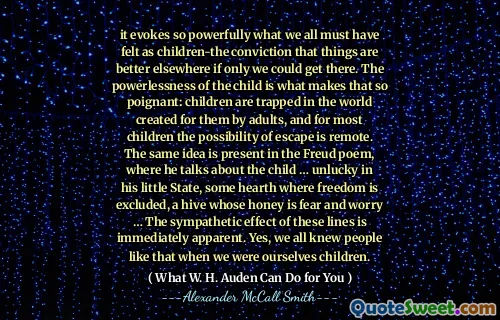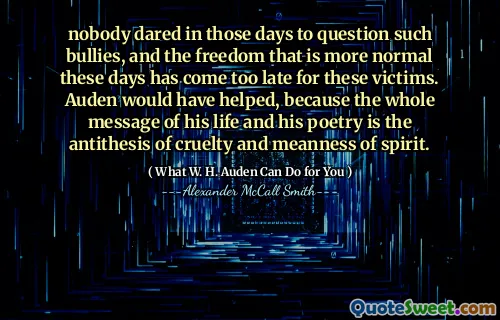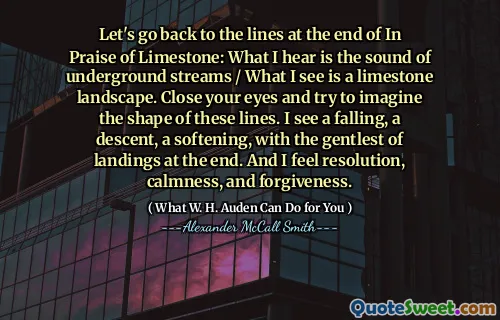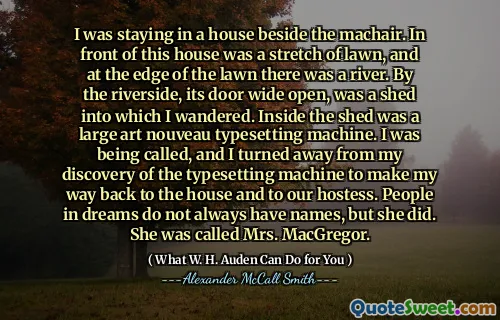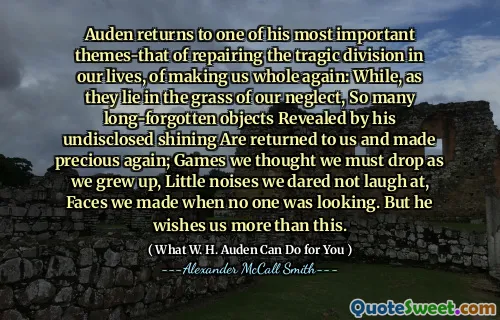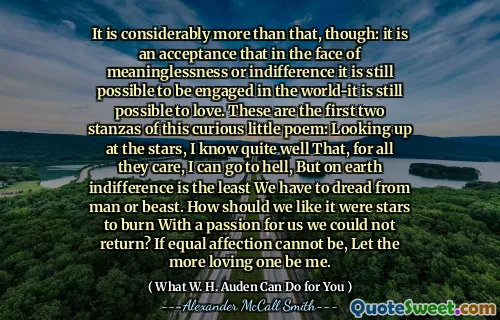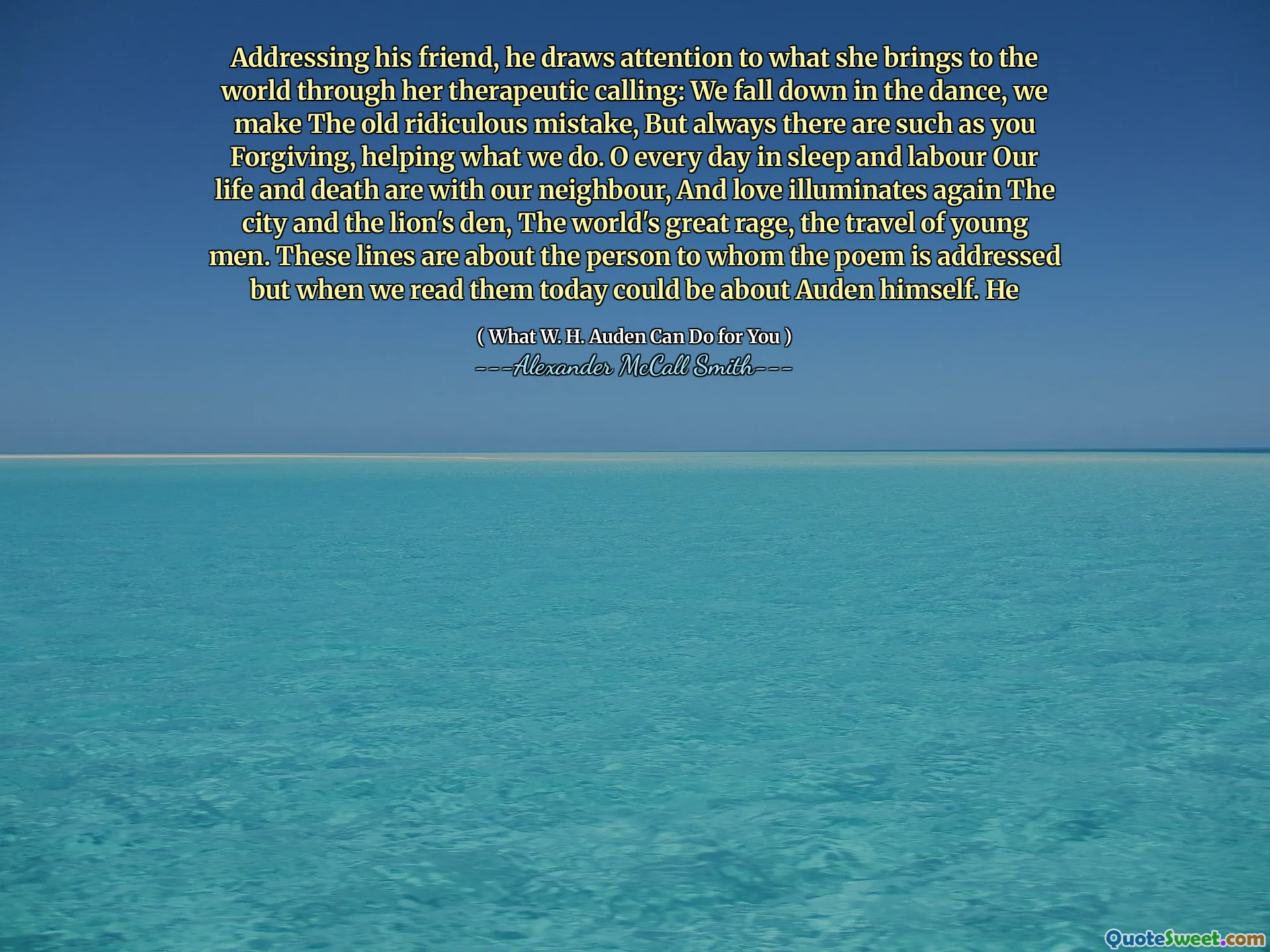
Addressing his friend, he draws attention to what she brings to the world through her therapeutic calling: We fall down in the dance, we make The old ridiculous mistake, But always there are such as you Forgiving, helping what we do. O every day in sleep and labour Our life and death are with our neighbour, And love illuminates again The city and the lion's den, The world's great rage, the travel of young men. These lines are about the person to whom the poem is addressed but when we read them today could be about Auden himself. He
In addressing his friend, the speaker highlights her significant contributions through her therapeutic work, suggesting that, despite our mistakes in life, there are people like her who offer forgiveness and support. This emphasizes the importance of community and compassion, as love shines light on the struggles and chaos of the world, influencing both daily life and existential challenges.
The lines resonate not only with the person being addressed but also reflect the author's experiences and sentiments. They evoke themes of connection and empathy, pointing to the enduring human spirit that persists amid conflict and the trials of youth. The author, Alexander McCall Smith, suggests that W. H. Auden embodies these qualities, making a profound impact through his insights on love and the human condition.
